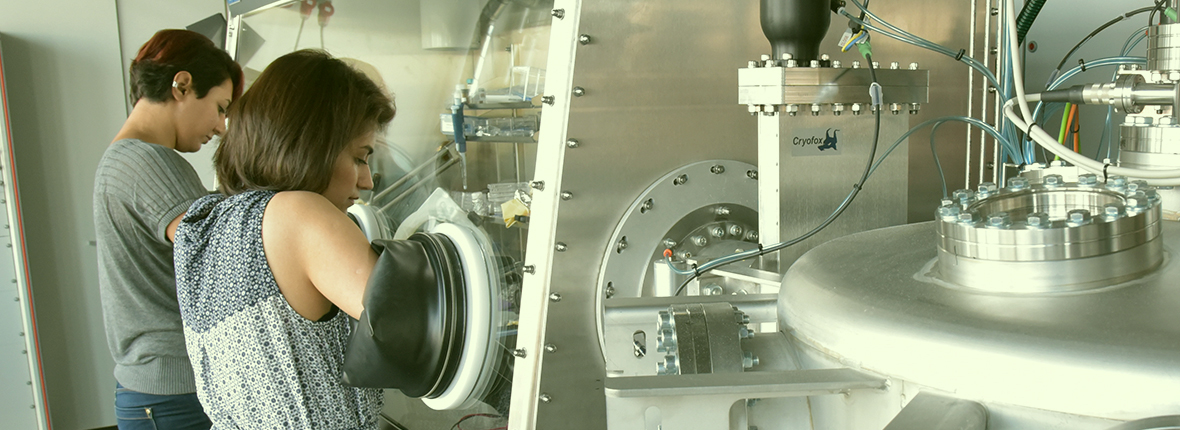This programmehas a flexible start and length.
Preferred student profile
Potentialcandidates are interested inphysics, materialsscience &engineering,nanotechnology,hybrid &newmaterials,composites,functional 3Dmaterials,chemicalengineering,environmentaltechnologies,energystorage,waterpurificationor biomaterials.
The candidates have experiencewithor wish to learn new fabrication techniques,e.g., wet chemistry, flame synthesis, thin-film depositionandclean room techniques. Newstrategies for innovative nanomaterials growthwill be discussed with focus onfundamental structure-property relationships.
We offer practice withstate-of-art advanced characterisation tools like Heliumionmicroscopy, SEM,opticaland electrical spectroscopyandmany others.
The candidates are interested (or experienced) in designing new nanomaterials for applications in advanced technologies.
Academic study field
PhD or MSc withinphysics,energy,materialsscience &engineering,chemicalengineering orenvironmentalengineering.
Description
A new class of nanomaterials, so-calledsmart materials, hasrecentlyemergedwith thecapability to self-respond to externalagents(e.g.,mechanicalstress, temperature, light, electric or magnetic fields, pHchanges, etc.) by altering one or more properties in the form of a reliable readout signal. Nowadays,for the application of these materials, akey challenge is todesignthe nanomaterialsin 3D complex smart forms equipped with the proper functions and easy to utilise simultaneously.A valuableapproach is to fabricate the 3D nanomaterials in the form of cellular solids with extreme porosities providing suitable functionalities. Their extensive applicationpotential for smart technologiesmake it essential to study and research these functional interfaces-based 3D porous materials.
Researchtopics
- 3D Materials
- Hybridmaterials
- Sensors (UV,force,heat,gas,environmental,biological)
- Smartcomposites
- Biomaterials
- Energymaterials
- Plasmonics,photonics,metamaterials
- Catalysis,heavymetaladsorption,water purification,filters
The programme is open at both levels, i.e., PhD and MSc, and students with relevant experiences and interests are most welcome. Typical duration rangesfrom 6 to 12 months (up to 2 semesters); however,there is a certain flexibilitydepending upon the mutual agreement between thehomeuniversity of the students and SDU(including Erasmus). Postdocs and experienced researchers are also welcomedto this exchange program depending on the mutual exchange agreements between institutions (including Erasmus and Erasmus +).
